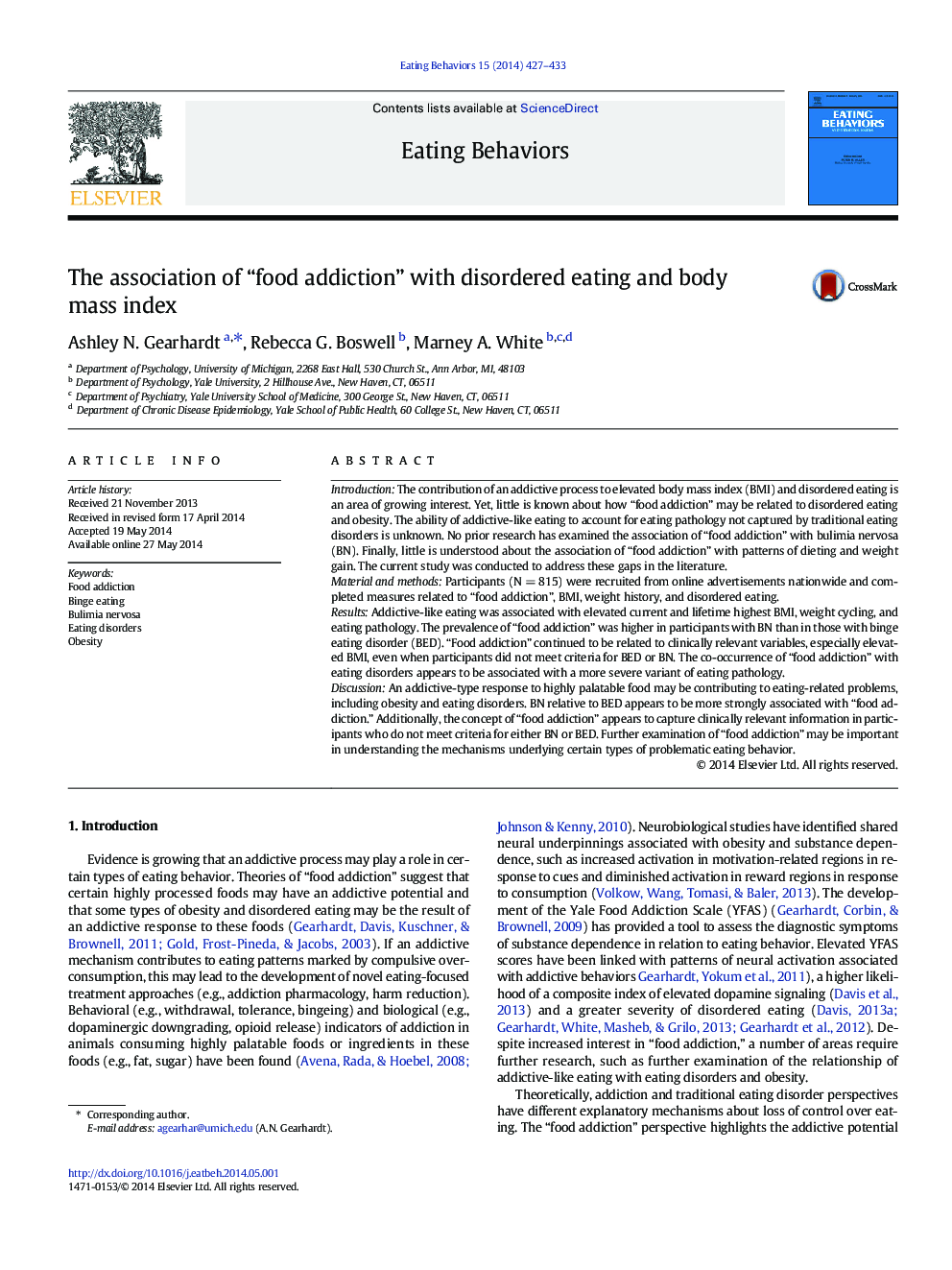| کد مقاله | کد نشریه | سال انتشار | مقاله انگلیسی | نسخه تمام متن |
|---|---|---|---|---|
| 906361 | 917003 | 2014 | 7 صفحه PDF | دانلود رایگان |
• Food addiction is higher in participants with bulimia vs. binge eating disorder.
• Food addiction is linked to greater body weight, binge eating, and pathology.
• Food addiction is related to higher weight for individuals without eating disorders.
• Food addiction with an eating disorders is linked to more severe pathology.
IntroductionThe contribution of an addictive process to elevated body mass index (BMI) and disordered eating is an area of growing interest. Yet, little is known about how “food addiction” may be related to disordered eating and obesity. The ability of addictive-like eating to account for eating pathology not captured by traditional eating disorders is unknown. No prior research has examined the association of “food addiction” with bulimia nervosa (BN). Finally, little is understood about the association of “food addiction” with patterns of dieting and weight gain. The current study was conducted to address these gaps in the literature.Material and methodsParticipants (N = 815) were recruited from online advertisements nationwide and completed measures related to “food addiction”, BMI, weight history, and disordered eating.ResultsAddictive-like eating was associated with elevated current and lifetime highest BMI, weight cycling, and eating pathology. The prevalence of “food addiction” was higher in participants with BN than in those with binge eating disorder (BED). “Food addiction” continued to be related to clinically relevant variables, especially elevated BMI, even when participants did not meet criteria for BED or BN. The co-occurrence of “food addiction” with eating disorders appears to be associated with a more severe variant of eating pathology.DiscussionAn addictive-type response to highly palatable food may be contributing to eating-related problems, including obesity and eating disorders. BN relative to BED appears to be more strongly associated with “food addiction.” Additionally, the concept of “food addiction” appears to capture clinically relevant information in participants who do not meet criteria for either BN or BED. Further examination of “food addiction” may be important in understanding the mechanisms underlying certain types of problematic eating behavior.
Journal: Eating Behaviors - Volume 15, Issue 3, August 2014, Pages 427–433
